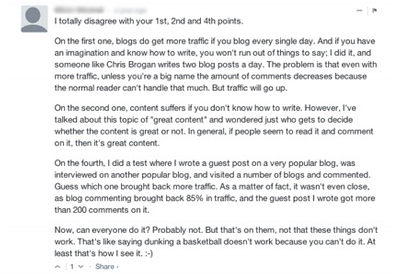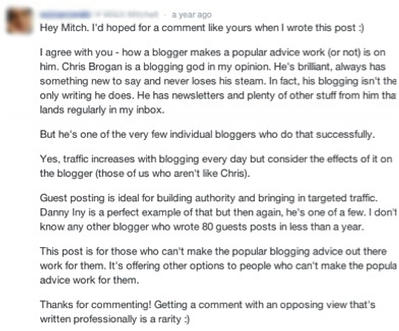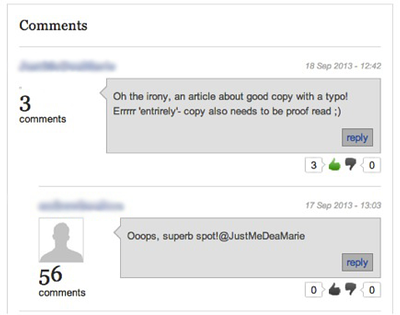
How to Respond to Comment Trolls: 4 Ways to Deal with Trolls
How to Respond to Comment Trolls: 4 Ways to Deal with Trolls
Kelsey Raymond, COO • Intero Digital • Published: February 18, 2014
Last Modified: July 26, 2024

The Low Down
- Ignore Irrelevant Comments: Avoid engaging with comments that don’t add value to the discussion.
- Acknowledge Misunderstandings: Correct off-topic comments by reiterating the original point.
- Engage Thoughtfully: Respond to valid arguments respectfully and maintain a constructive debate.
- Admit Mistakes: Acknowledge when the commenter is right to show credibility and openness.
They don’t have pink or green hair, and they don’t hide under a bridge, but they do comment on your articles. They’re the trolls of the Internet, and unfortunately, you can’t get rid of them by paying the toll.
If you’re not sure how to deal with them, here are four ways you can respond to comment trolls:
1. Ignore Them
There are some comments that — simply put — don’t merit a response. When a comment is so far-fetched that any acknowledgment would only justify its craziness, the best response is none at all.
And when you ignore the comment, it’s a good indicator to your other readers that they should follow suit.
I wrote an article about how I was exhausted by the stream of negative content about the lack of women in leadership roles. There were many comments that — while not too crazy — didn’t add to the conversation, so I chose not to respond.
A complete disregard for the topic at hand warrants silence.
2. Acknowledge the Commenter’s Misunderstanding
Other comments might not have completely dived off the deep end, but they might be so far off-topic that it’s not worth your time to counter the argument or try to change the person’s mind.
In this scenario, you must stick to the actual topic at hand and point out where the commenter is straying from the actual argument.
The best example I’ve seen of this is with a founder who was accused of discriminating against those with learning disabilities in one of his articles.

Obviously, Brent wasn’t happy about the accusation, but rather than ignoring it and allowing the commenter to feel that he was right, Brent calmly reiterated his point and acknowledged that the commenter had made a big stretch by jumping to unfounded conclusions.
3. Engage in Thoughtful Debate
When someone comments on your article with an argument that can be easily countered, it’s difficult to resist the urge to furiously type a rash response.
Instead, you should approach it like a debate.
Acknowledge the person’s side of the argument, clear up any miscommunications or misstatements, and then present your personal side of the argument.
Other readers will appreciate the time you took and will be less likely to revert to agreeing with the troll.
In an article on blogging advice, a commenter starts a debate with well-thought-out, valid arguments.

Then, the author takes the appropriate route and engages in the debate in a respectful manner.

She even gracefully thanks the commenter at the end of her reply.
4. Admit When You’re Wrong
Sometimes, a commenter who appears to be a troll at first glance turns out to be wise.
When someone makes a scathing comment about your opinion and — upon thinking it through — you realize she is right, let her know.
It doesn’t make you look less credible to show that you can think through things and refine your opinion.
In an article on why bad copywriting will hurt your brand image, the author made a mistake, acknowledged it, and thanked the commenter for spotting it.

The most important thing to remember is to engage your audience in a way that adds value.
If a comment is so off-the-wall that no response could enhance the discussion, then feel comfortable ignoring it. Otherwise, you should look for a way to respond and keep the conversation going.
